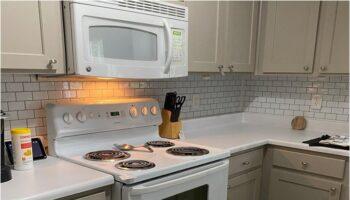Although often overlooked, acoustics are a very important feature of a home. It may seem insignificant, but the way that sound and noise travel through the air and walls can impact your ability to focus, your productivity or the way you communicate with other people. If you’re not sure how this happens, keep on reading to find out how improved home acoustics can better the quality of time spent with your dear ones.
How Can I Optimise the Acoustics in My Home?
The first thing you need to do is to find out what the problem is. Does the sound echo too much? Can you barely hear someone from the other room? Everything sounds high-pitch and your glasses are about to crack at any time of the day?
If you know what we’re talking about, there are two things you should turn your attention to: the diffusion and the absorption of the sound. In most homes, the problem is that the sound is too diffused and not at all crisp. You may even hear, but not distinguish, conversations from a room nearby. However, there are also cases when the sound is overly absorbed, and it typically happens in spaces that are filled with furniture, long draperies or other surfaces that capture sound instead of reflecting it.
How Can Acoustic Products Help Me?
Most acoustic products were designed to help you soundproof your home. From Barrier Shield mats, plasterboards and foam sheets to quilts that you can lay inside the floor or walls, you can take care of the acoustics of your home from the moment you’ve started building it until long after you have moved in.
Their purpose is to enhance the way sound travels through air and other mediums, in order to benefit from the best possible acoustics and enjoy your conversations without having to worry about outside noise.
What Treatments Can I Apply?
Any wall, ceiling or floor can be treated to enhance the acoustics in a certain space. However, we recommend you to check the way sound propagates in your home. For instance, it is common for the sound to travel vertically in multi-storey buildings. If that’s the case for you, most likely you need to insulate the ceiling, the floor or both of them.
According to Mike from Noise Stop Systems “In single-storey buildings, soundproofing walls seems more helpful, since the sound travels horizontally. Nonetheless, it’s important to take a test before deciding what treatment to apply to a certain room or to the entire house, to make sure you’re insulating where needed.”
How to run the test? Stand in different spots around the house (or the space you would like to treat acoustically) and clap your hands. Then, pay attention to the way sound travels and behaves-does it sound crisp? Does it have an echo? Is it muffled? Then, clap your hands once again, only this time ask someone to stand in a room nearby. This will help you evaluate better what needs to be done, considering the ratio between diffusion and absorption of sounds.





